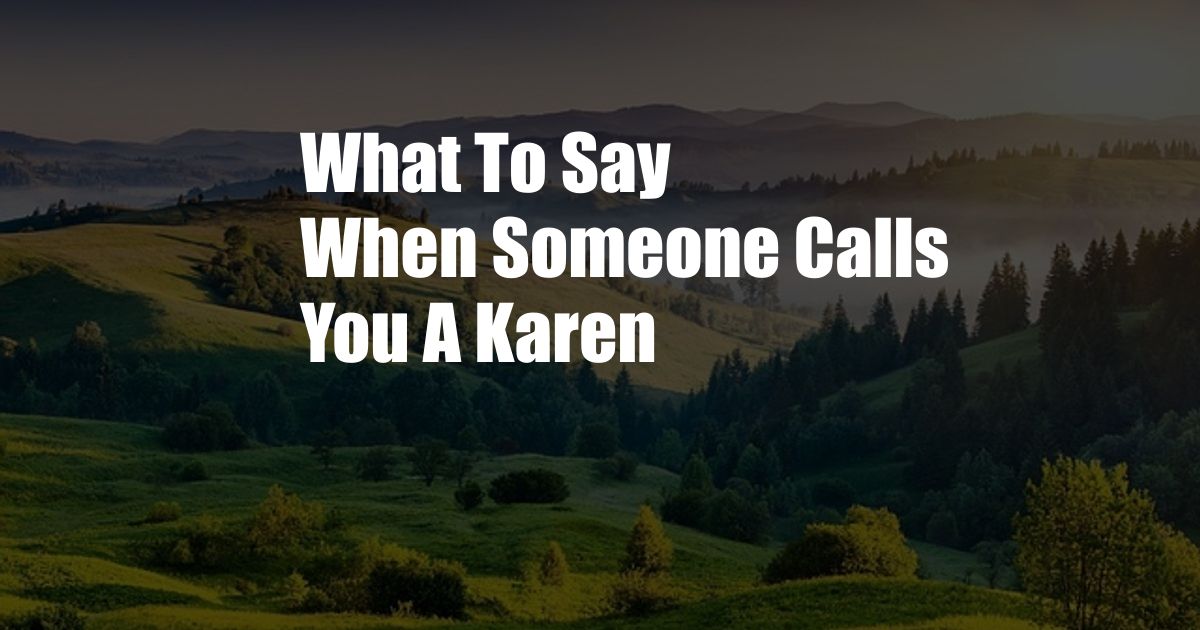
What to Say When Someone Calls You a Karen
In the realm of internet culture, the term “Karen” has evolved into a loaded epithet, often employed to disparage middle-aged women perceived as entitled, demanding, and confrontational. This label has permeated social media platforms, news outlets, and everyday conversations, sparking both amusement and controversy.
Being labeled a “Karen” can be a jarring experience, leaving one feeling bewildered, frustrated, and even angry. While it’s tempting to lash out or dismiss the accusation as baseless, it’s essential to respond with composure and grace. After all, stooping to the accuser’s level will only reinforce their negative perception.
Maintaining Your Equanimity
When faced with the “Karen” label, the key is to remain calm and collected. Avoid reacting impulsively or defensively. Instead, take a deep breath and remind yourself that your worth is not defined by the opinions of others.
It’s equally important to recognize that the “Karen” stereotype is often based on generalizations and biases. Not all middle-aged women conform to this caricature, and it’s unfair to label someone as such based solely on their age or gender.
Understanding the Subtext
The “Karen” label often carries with it a subtext of ageism and sexism. It implies that women of a certain age are inherently entitled and difficult to deal with. It’s essential to challenge this stereotype by demonstrating that women, regardless of their age, can be respectful, assertive, and compassionate.
Instead of taking the “Karen” label personally, view it as an opportunity to educate others about the harmful implications of such generalizations. Explain that labeling someone a “Karen” is not only offensive but also perpetuates harmful stereotypes.
Emphasizing Commonalities
When engaging with someone who has labeled you a “Karen,” try to find common ground. Focus on shared values or experiences rather than dwelling on the differences.
For instance, you could say something like, “I understand that you’re feeling frustrated, but I want to assure you that I’m not trying to cause trouble. I’m simply trying to advocate for what I believe in.” By emphasizing shared goals and values, you can help bridge the gap and foster a more constructive dialogue.
Setting Boundaries
While it’s essential to remain respectful, it’s equally important to set clear boundaries. If someone persists in using the “Karen” label or engaging in disrespectful behavior, it’s acceptable to disengage from the conversation.
Politely inform the person that you will not tolerate being labeled or treated disrespectfully. Explain that you value respectful discourse and that you’re not willing to engage in conversations that are based on stereotypes or personal attacks.
General FAQ
Conclusion
Dealing with the “Karen” label can be a challenging experience, but it’s essential to remember that you are not defined by the opinions of others. Maintain your composure, challenge the stereotype, and set clear boundaries. By doing so, you not only protect your own well-being but also contribute to a more inclusive and respectful society.
Are you interested in learning more about the “Karen” stereotype and how to respond to it effectively?